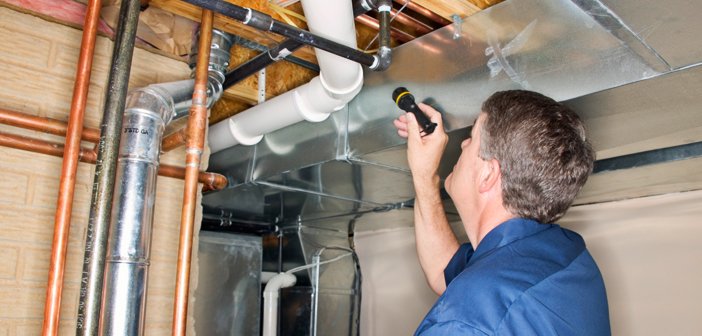
Quick tips for tackling inspector anxiety
Home inspectors share common causes of on-the-job anxiety. Among those nail-biting situations: missing something big and the potential consequences; dealing with difficult clients and real estate agents; and drawing the line between what inspectors should and shouldn’t do.
There are, however, straightforward ways to diminish – even avoid – the angst associated with conducting home inspections. Two inspectors offer their solutions to common industry hurdles.
It’s what you don’t see
Home inspector Steven Wright, who owns Wright Way Home Inspections, in Boca Raton, Fla., said he worries about what he might miss.
“The one thing that does concern me being down here [in South Florida] is the Chinese drywall. Although most of it has been discovered by now, it’s very difficult to find,” Wright said. “Personally, I haven’t encountered [a lawsuit] yet in five years of doing this. But it’s something that is concerning.”
Alvin Ubell, founder and chief inspector of Accurate Building Inspectors of Brooklyn, N.Y., said the home inspection industry is a high-liability industry.
“So, the fear of missing something in a home or building inspection is always there,” Ubell said. “As the saying goes, however, ‘The one who doesn’t make any mistakes doesn’t do any work.’”
Solution: Wright said he uses a systematic approach when doing home inspections using software.
“The software that I have pretty much prevents me from missing most things,” Wright said. “I take the same systematic approach whether it’s a 1,500-square-foot house or 4,500-square-foot house.”
Experience can help to ease this worry. The anxiety associated with missing things disappears over time, Ubell said.
“A home inspector has to have at least five or six years of experience and have looked at hundreds of pieces of property, in order to finely develop his or her critical eye to know what’s paramount and what’s not and to understand that if something is not normal it is immediately abnormal,” Ubell said. “We invite the potential homeowner to accompany us on our inspections. This gives them the opportunity to know what the building is all about and to ask questions right on the spot.”
Drawing the line
Inspectors often are faced with clients who ask that they do more than the inspection. For example, they might want advice on which contractors and companies to use for needed repairs, according to Wright.
Solution: Wright doesn’t usually recommend contractors, and will, on occasion, recommend only a highly rated electrician and A/C company.
“In my report, I advise them what type of contractor they need to hire for the job. … but if they ask me for a specific name, I don’t usually give that to them because it’s my business’s reputation riding on somebody else doing a good job,” Wright said.
The question best left unanswered
“The worst question I get from homeowners is: Would you buy this house?” Wright said.
Solution: Wright never answers that question. Rather, he tells clients he can’t answer the question because it’s a conflict of interest.
“I give them all the information they need to make an informed decision,” he explained. “That’s my job as a home inspector.”






